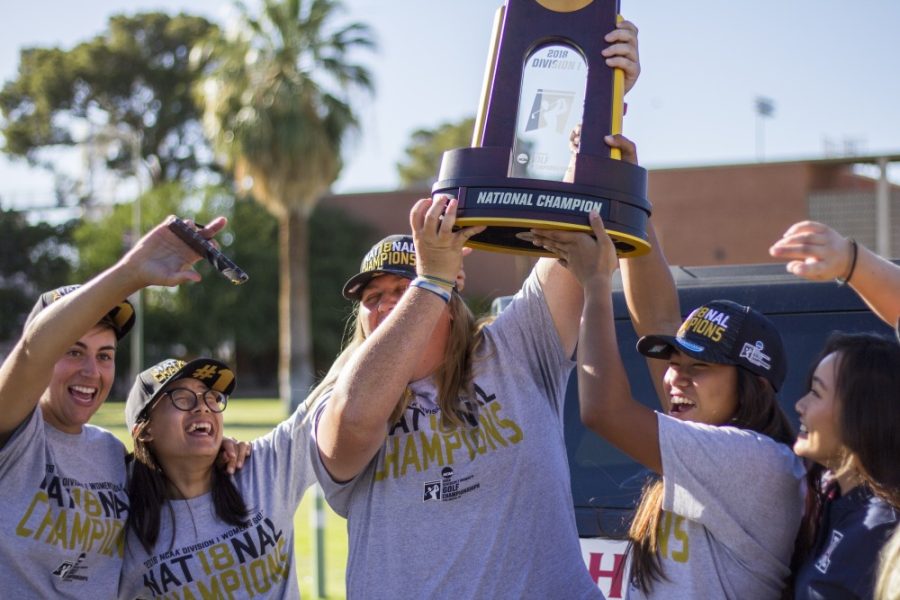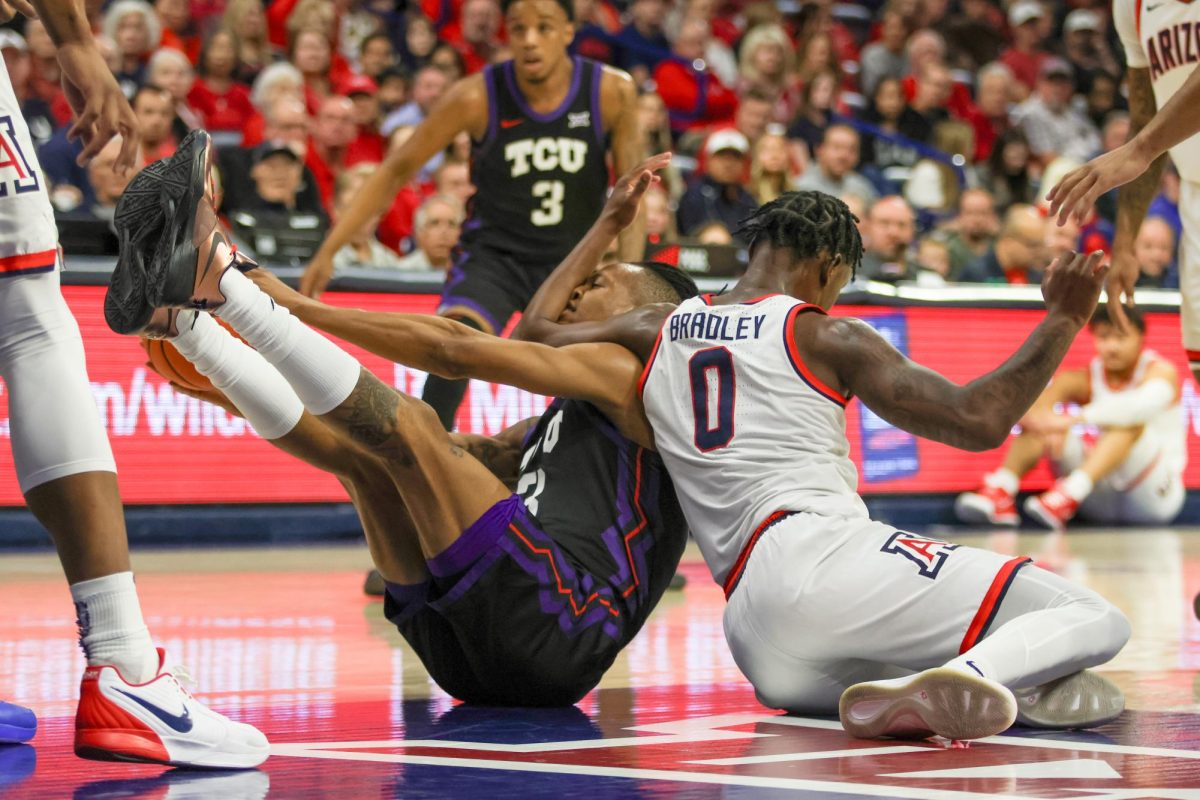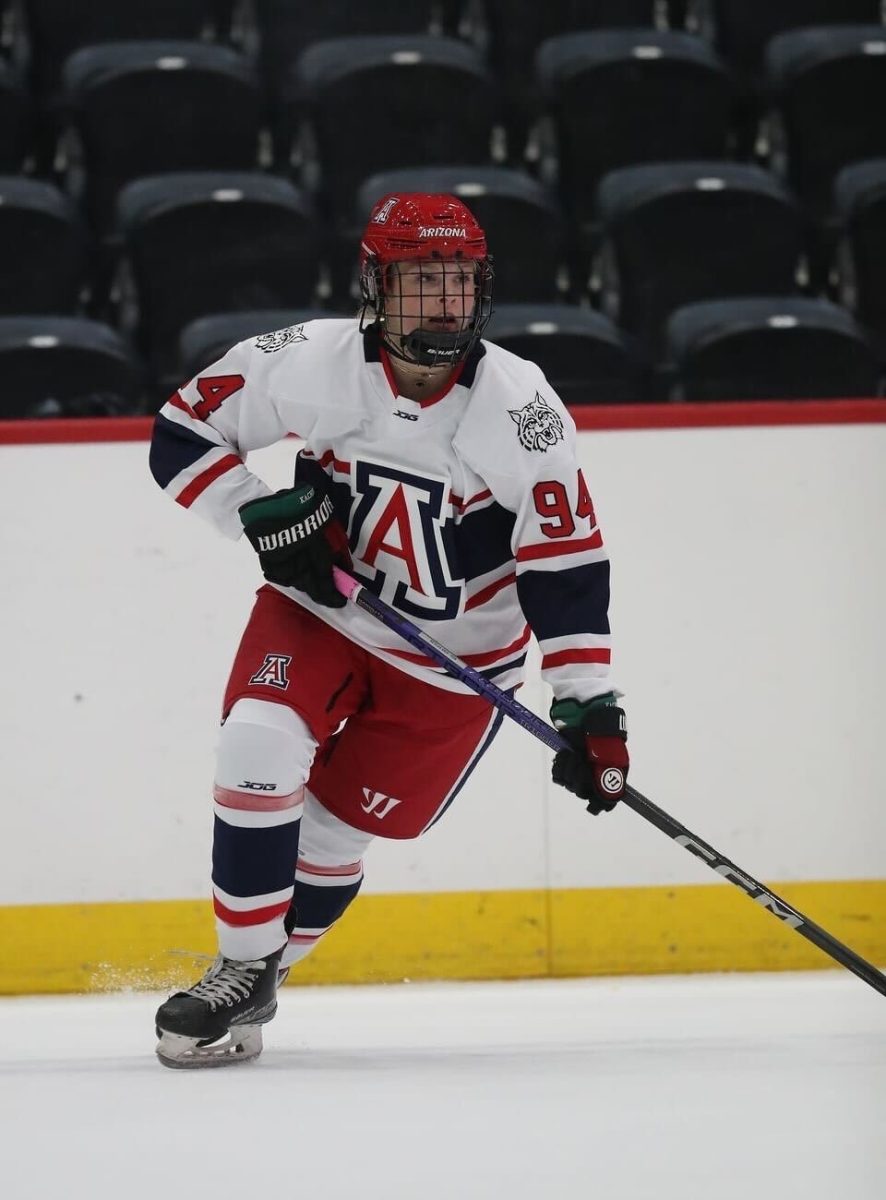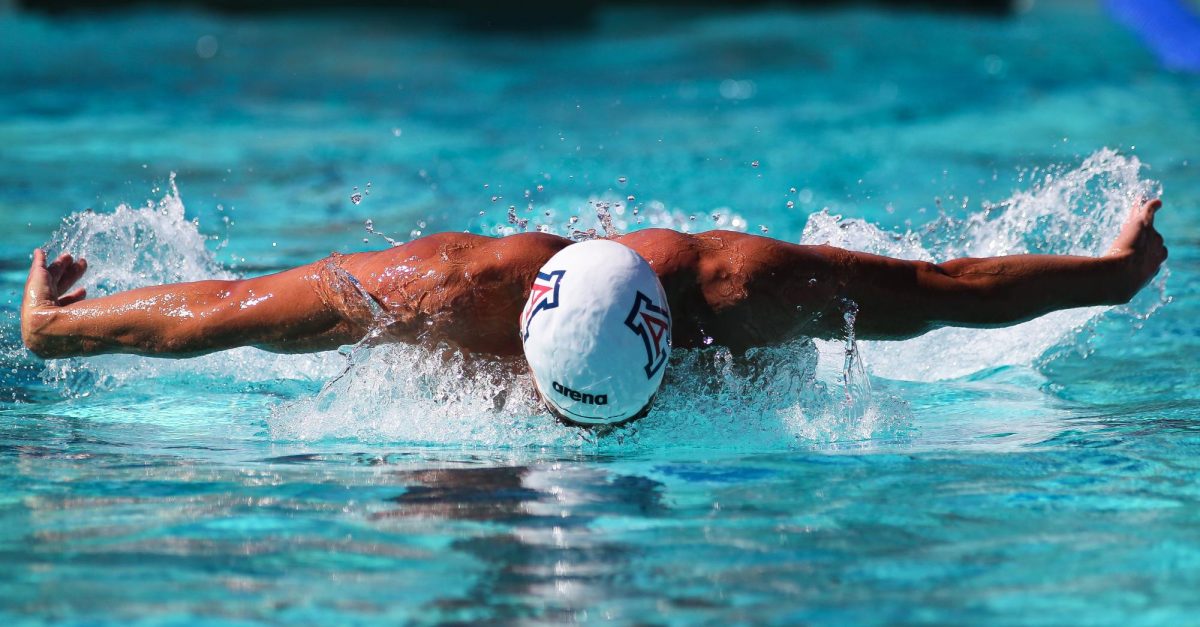History was made when Haley Moore hit a putt in a sudden-death 19th hole to win the national championship for University of Arizona women’s golf and give the program its third title overall. The program won national championships in 1996 and 2000 as well. Here’s how the teams stack up against each other.
1996:
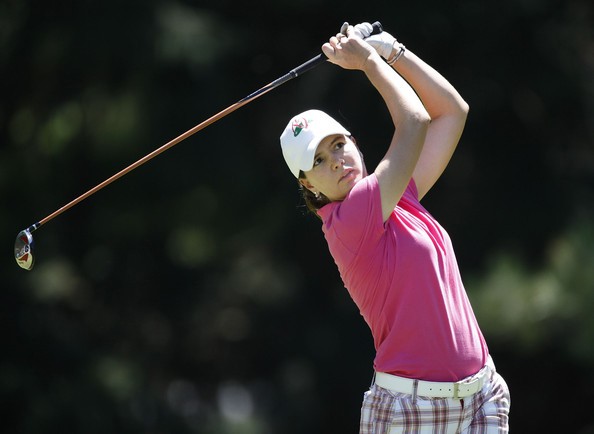
Much like the champions of 2018, these Wildcats needed a sudden-death hole to capture the program’s first-ever title. Arizona’s own NCAA Player of the Year Marisa Baena eagled on the 18th hole after she missed a birdie putt on the final hole of regulation. She also won the individual championship by a staggering seven strokes.
Baena was one of the most successful women’s golfers to play at Arizona, winning 10 tournaments over the course of three years. She was named the Eleanor Dudley National Player of the Year in both 1996 and 1997, and spent time ranked as the top female amateur in the world during those years
RELATED: Tucson welcomes home National Champions
But the Wildcats didn’t win the title on Baena’s merits alone. The star-studded team included two All-Americans, Heather Graff and Krissie Register, as well as All-Pac-10 Academic selections Christina Tolerton and Jeanne Anne Krizman.
The ‘Cats won five of their last six tournaments of the year and were coached by Hall-of-Famer Rick LaRose who is the only golf coach in NCAA history to win both a men’s and women’s national championship.
2000:
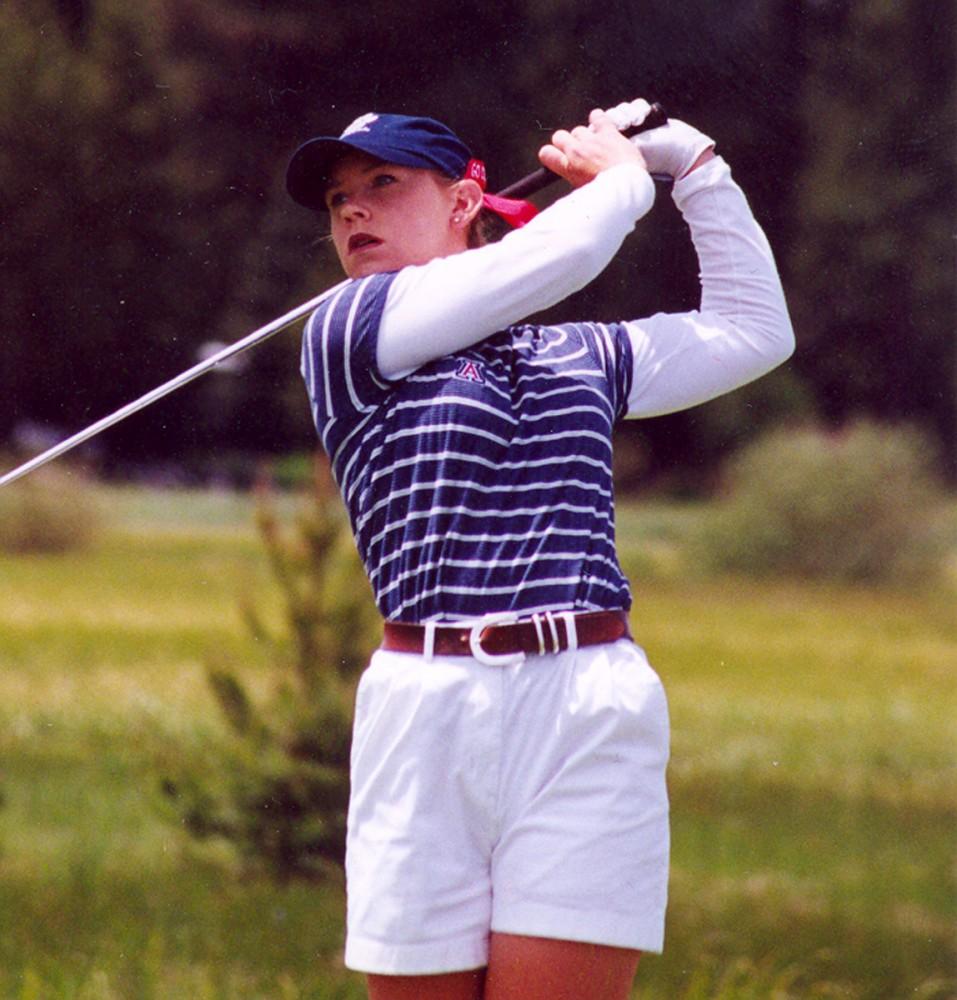
While the 1996 and 2018 championship tournaments produced nail-biting finishes, Arizona’s national title win in 2000 saw the ‘Cats storm to a 21-shot victory over Stanford at Trysting Tree Golf Course in Oregon.
The 2000 Wildcats set the standard for a dominant team, winning eight consecutive tournaments to end the year. The team’s four-round championship tournament total was the third largest victory margin in the tournament’s 19-year history at that point, according to UA Athletics.
RELATED: Arizona women’s golf beats Alabama to win national championship
That year, the ‘Cats were loaded with talent, including the NCAA individual champion and No. 1 ranked collegiate golfer Jenna Daniels. The rest of the team was comprised of Julia Kraschinski, Christina Baena, Jill Gormic and Christina Monteiro, who all ended the year ranked among the top 30 collegiate golfers. Kraschinski placed second in the NCAA individual competition as only a freshman.
The women’s team was coached by Todd McCorkle who led the ‘Cats to runner-up finishes at the 1999 Pac-10 & NCAA West Regional Championships before bringing home the title the following year.
2018:
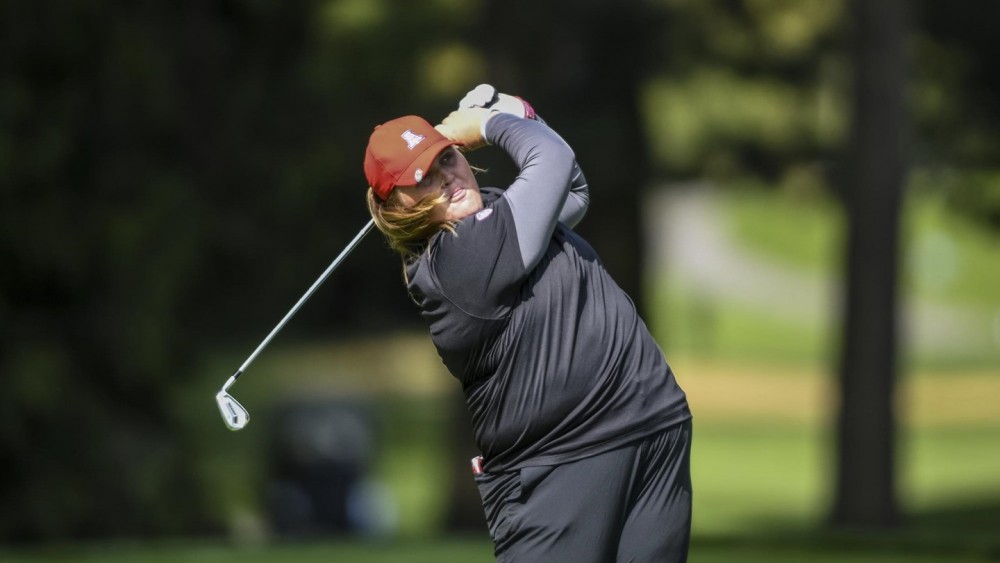
This year’s championship team took the road less traveled to capture glory. Arizona entered postseason play as a longshot to win the title as the No. 8 seed, but went on a Cinderella run all the way to the finals.
The Wildcats were saved in the opening round by Bianca Pagdanganan when she eagled on the last hole to force a playoff with Baylor, which Arizona eventually won. The following day, the Wildcats defeated No. 1 UCLA by a score of 3-2 in the quarterfinals and No. 5 Stanford by a score of 4-1 to set up a date with No. 2 Alabama in the championship. Down 2-1, the ‘Cats rallied with match points from Sandra Nordass and Haley Moore for the dramatic finish.
Unlike the previous national champions, Arizona didn’t boast an all-star cast, nor did they stand above the rest of the conference as a team. The ‘Cats won only two tournaments during the season (both in March), finished tied for third in the conference tournament and fourth in the NCAA Regionals.
Despite this, the UA relied on the collective efforts of its golfers to realize its championship potential. Haley Moore and Bianca Pagdanganan paced the field and the leaderboards for the ‘Cats most of the year. But during the NCAA Tournament, they saw teammates Yu-Sang Hou, Gigi Stoll and Nordass have standout performances. None of the UA’s golfers were ranked among the top 20 in the country; Moore was the highest at No. 22.
The improbable and magical run for the ‘Cats gave the women’s team its first title in almost two decades, reminding everyone that Arizona is still capable of being a premier golf program.
Follow Alec White on Twitter



